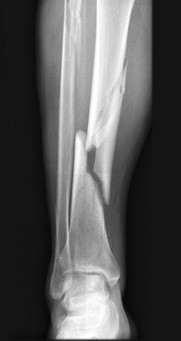A nurse is caring for a client who is 2 days postoperative following a total bilateralmastectomy. The client is tearful and looks away when her surgical dressings are removed. The nurse should place the priority on which of the following actions?
Demonstrating a nonjudgmental attitude toward the client when providing care for her surgical wounds
Providing the client with information on community resources that will strengthen her coping skills
Identifying the client's perception of the changes in her physical appearance
Encouraging the client to write about her feelings in a journal each day
The Correct Answer is C
The correct answer is C. Identifying the client's perception of the changes in her physical appearance is essential for developing a plan of care that addresses her psychosocial needs and promotes her self-esteem and body image. The client may experience grief, anger, depression, anxiety, or guilt after losing her breasts, which can affect her quality of life and recovery. The nurse should explore how the client feels about herself and her sexuality, and provide emotional support and empathy. The other actions are also important, but they are not as a priority as understanding how the client views herself.
Nursing Test Bank
Naxlex Comprehensive Predictor Exams
Related Questions
Correct Answer is A
Explanation
Choice A reason:
Urine specific gravity is the measurement of the concentration of solutes in urine and is an important indicator of the client's hydration status and kidney function. A specific gravity of 1.035 is relatively high, suggesting concentrated urine. High urine specific gravity can be a sign of dehydration or other kidney-related issues.
Reporting this finding to the provider is crucial because it could indicate potential problems with the client's fluid balance and kidney function. The provider may need to assess further, conduct additional tests, or initiate appropriate interventions to address the client's hydration and renal status.
Choice B reason:
Prealbumin: A prealbumin level of 25 mg/dL is within the normal range (usually 15-35 mg/dL) and may not require immediate reporting to the provider. Prealbumin is used to assess nutritional status, and this result suggests that the client's nutritional status is within the normal range.
Choice C reason:
Temperature: The provided information does not include any data about the client's temperature, and there are no signs of infection mentioned. Unless there are specific signs or symptoms of fever or infection, reporting the temperature is not necessary based on the given data.
Choice D reason
Bowel sounds: The provided information does not include any data about the client's bowel sounds, and there are no indications of gastrointestinal issues or abnormalities. Bowel sounds may not be relevant to report unless there are specific symptoms or signs of GI disturbances.
Correct Answer is B
Explanation
Choice A reason:
Pain with movement of the left great toe is incorrect finding: Pain may be expected in a client with a fractured left tibia, especially if the great toe is moved. Pain is more related to the fracture and may not specifically indicate altered tissue perfusion.
Choice B reason:
Faint pedal pulse of the left leg is correct because it indicates that the blood flow to the foot is diminished. The pedal pulse is the pulse felt on the top of the foot, and its faintness could suggest reduced arterial blood flow to the foot.
Choice C reason:
Warm skin temperature distal to the pin site is incorrect: Warm skin distal to the pin site may indicate adequate blood flow and could be a normal finding. Warmth is generally associated with increased blood flow to the area.
Choice D reason:
Purulent drainage at the pin site is incorrect. Purulent drainage at the pin site could indicate an infection, but it is not directly related to altered tissue perfusion. Infection can lead to complications, but it does not necessarily indicate reduced blood flow to the extremity.

Whether you are a student looking to ace your exams or a practicing nurse seeking to enhance your expertise , our nursing education contents will empower you with the confidence and competence to make a difference in the lives of patients and become a respected leader in the healthcare field.
Visit Naxlex, invest in your future and unlock endless possibilities with our unparalleled nursing education contents today
Report Wrong Answer on the Current Question
Do you disagree with the answer? If yes, what is your expected answer? Explain.
Kindly be descriptive with the issue you are facing.
